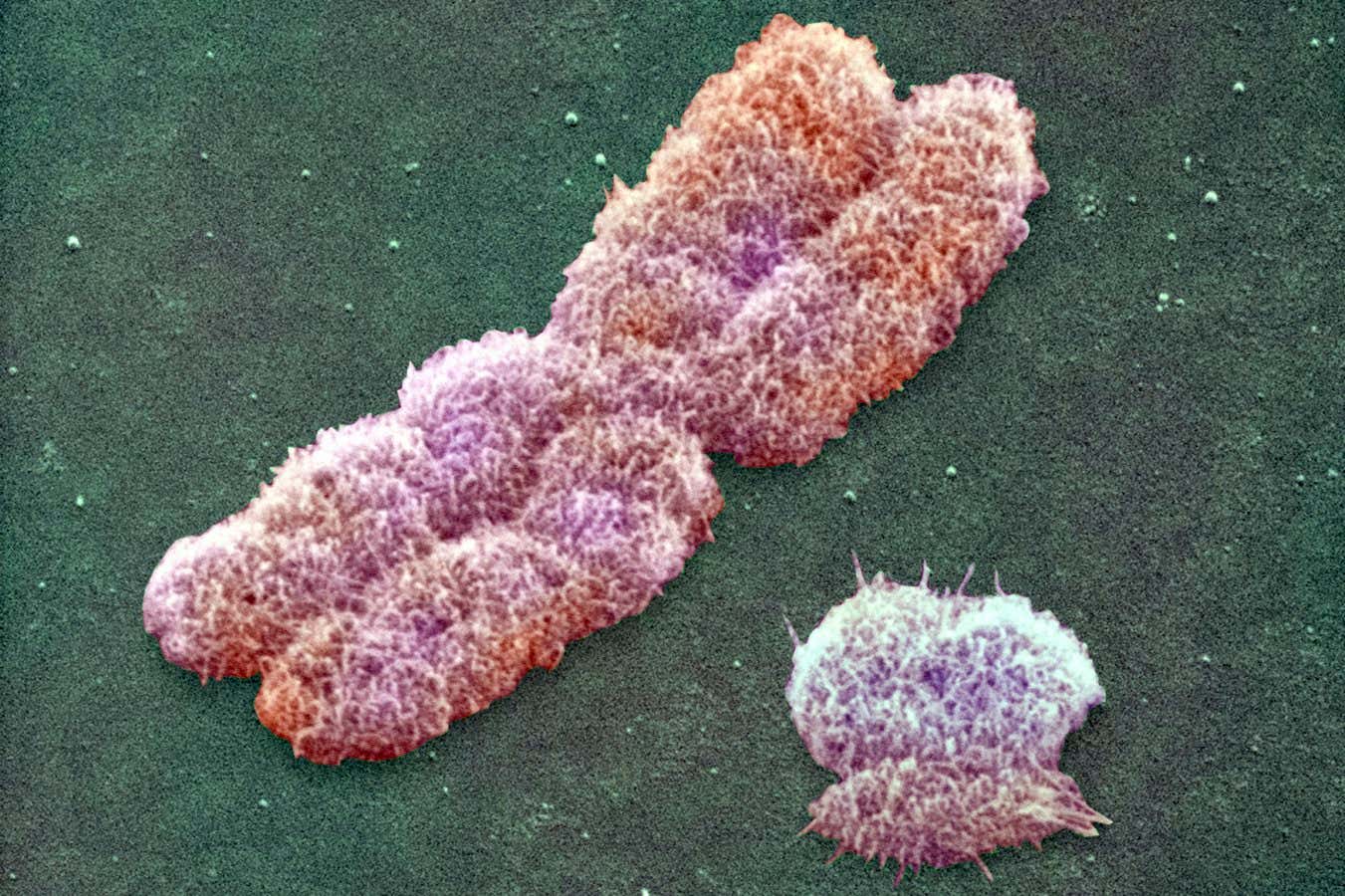Men typically lose Y chromosomes from their cells as they get older, which could be affecting their heart health
By Liam Drew
12 August 2025
A human Y (right) and X chromosome seen with a scanning electron microscope
POWER AND SYRED/SCIENCE PHOTO LIBRARY
Men who have lost their Y chromosome from a significant number of their immune cells are more likely to have narrow blood vessels, a key contributor to heart disease, according to a study of more than 30,000 people.
“Loss of Y is killing a lot of men,” says Kenneth Walsh at the University of Virginia, who wasn’t involved in the study. “Men live six years shorter than females, and an enormous amount of that mortality is due to their sex chromosome instability.”
Read more
How vanishing Y chromosomes could help explain men's ill health
The loss of the Y chromosome is the most common mutation that occurs post-conception in males. It typically takes place in white blood cells, immune cells that attack and eliminate pathogens, as the rapidly proliferating stem cells that generate white blood cells divide. Cells that lack Y accumulate with age, becoming readily detectable in roughly 40 per cent of 70-year-old men.
The issue began gaining attention in 2014, when Lars Forsberg at Uppsala University in Sweden and his colleagues found that older men with significant loss of Y in their blood died, on average, five-and-a-half years earlier than those without it. Walsh later linked it to heart disease.
Now, Forsberg and his colleagues are gaining further insights into the types of cardiovascular problems associated with the loss of Y. The team took advantage of the Swedish Cardiopulmonary Bioimage Study, which gathered detailed blood vessel scans from just over 30,150 volunteers aged 50 to 64, around half of whom were male. None of the volunteers showed signs of cardiovascular disease, but were still assessed for any blood vessel narrowing, or atherosclerosis.
